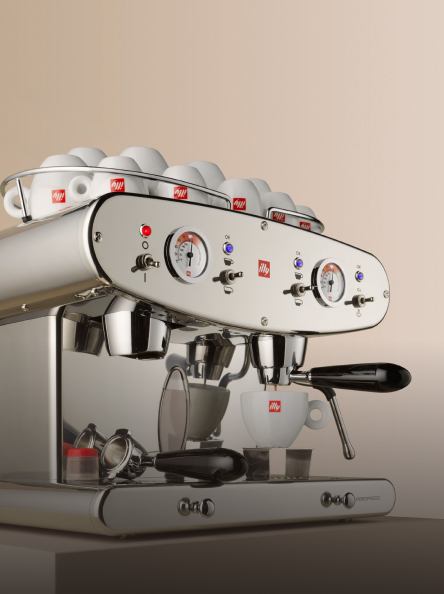Today, coffee franchises are among the most dynamic and resilient business models within the Hospitality sector. Faced with changing consumption habits, rising costs and growing demand for sustainability, operators must rethink their strategies.
If you run or plan to open a coffee franchise, this article will provide you with insights, best practices and data-driven strategies to help you achieve long-term growth. Read on to discover how your coffee franchise can stand out and succeed in an increasingly competitive market.
Table of Contents
- Coffee franchise: how to build a successful and sustainable model?
- Business models in the coffee franchise sector
- Key strategies for long-term success
- Sustainability as a competitive advantage
- Consumer insights and expectations
- Differentiation opportunities for coffee franchises
- Conclusion: building resilience and value
Coffee franchise: how to build a successful and sustainable model?
The answer lies in a balanced approach: combining brand strength with local adaptation, diversifying the menu with innovative coffee formats, investing in digital and loyalty tools, and embedding sustainability into every aspect of the business. By doing so, coffee franchises can grow and ensure relevance for future generations of consumers.
The UK coffee shop market has shown remarkable resilience, despite the combined challenges of inflation, squeezed consumer spending and rising operational costs. According to World Coffee Portal, the branded coffee shop segment alone grew to 20,400 outlets in 2023, generating £9.9 billion in sales, an increase of +6.8% year-on-year (World Coffee Portal. (2024, March). Project Café UK 2024 Summary. Allegra Group). This confirms that the coffee shop culture remains deeply embedded in British consumer habits.
Expansion of coffee franchises
Franchises play a decisive role in this growth. Chains have accelerated their expansion through innovative formats such as drive-thrus, which cater to convenience-driven customers, and delivery services, which have become a staple post-pandemic. Retail partnerships are also key, with coffee brands increasingly collaborating with supermarkets, convenience stores and foodservice operators to extend reach beyond the traditional café environment.
For operators, franchising offers the advantage of brand recognition, economies of scale in procurement and marketing, and a proven operational model. This has allowed franchise coffee shops to capture a growing share of the out-of-home coffee market, especially compared to independent cafés, which face greater challenges in absorbing rising costs.

Coffee culture as social and economic stabiliser
Beyond pure numbers, coffee shops serve a broader cultural function. Data from Lumina shows that coffee is increasingly chosen as a social alternative to casual dining, particularly as consumers seek affordable ways to connect with friends, family and colleagues (Lumina Intelligence. 2023, April. Evolving Coffee Landscape: A Deep Dive Into Consumer Trends). Coffee shops have also become part of the hybrid work routine, offering an environment where people can combine productivity with leisure.
This dual function — a place to socialise and a space to work — makes coffee franchises more resilient to economic downturns. Even when households cut back on discretionary spending, the “small luxury” of a high-quality coffee remains accessible compared to higher-ticket dining occasions.
Rising consumer expectations.
While footfall remains strong, consumer expectations have intensified. Only the best is good enough! Research indicates that 23% of UK consumers now demand more from venues than they did a year ago, with particular attention to value, service quality and sustainability (CGA by NielsenIQ. 2023, March. Optimising Brand Reputation in Hospitality). For franchises, this translates into the need for constant menu innovation, investment in digital convenience and visible commitments to ethical sourcing.
Outlook & future proofing
Looking ahead, market forecasts suggest continued but modest growth, with the branded coffee shop market expected to surpass £12 billion by 2028 if operators maintain momentum (World Coffee Portal. 2024, March. Project Café UK 2024 Summary. Allegra Group). The franchises best positioned for long-term success will be those capable of balancing scalability with local relevance, while embedding sustainability and customer-centric innovation into their operations.
.jpeg?width=500&height=333&name=cq5dam.web.1280.1280%20(9).jpeg)
Business models in the coffee franchise sector
The coffee franchise landscape is diverse, ranging from global chains with thousands of outlets to regional and niche concepts targeting specific audiences. Understanding these models is essential to assess opportunities and risks.
Global chains
Large international brands dominate UK’s High Streets . Their strength lies in brand recognition, large-scale marketing and highly standardised operations. Customers know exactly what to expect, whether they visit in London, Manchester or abroad. However, the risk of uniformity is that these chains sometimes struggle to adapt quickly to local tastes and cultural nuances.
Regional franchises
Smaller franchise networks, often national or regional, have more flexibility. They can adapt menus, store design and pricing strategies to local demographics. For instance, a franchise in a university town may focus on iced beverages and plant-based options, while one in a business district prioritises speed and convenience. These networks are also increasingly positioned as “community-oriented,” tapping into the consumer desire to support local businesses.
Independent affiliates
Finally, there are independent operators who affiliate with larger coffee brands or suppliers. These businesses benefit from training, marketing support and supply chain advantages while retaining their entrepreneurial character. For many Hospitality operators, this hybrid model represents an attractive balance between independence and the security of a recognised brand.
Key insight: regardless of the model, the main challenge is scaling without diluting customer experience. Franchises need to safeguard consistency while empowering franchisees to reflect local market dynamics.
Key strategies for long-term success of the coffee franchise
The growth of a coffee franchise depends on four interconnected strategies: menu development, customer experience, digitalisation, and training.
Menu development: innovation & staying on trend drives growth
Coffee menus are no longer limited to espresso, cappuccino and latte. Today’s consumer expects variety, seasonality and novelty.
- Iced and cold coffee: consumption of iced beverages is rising year-on-year and has become a driver of growth.
- Plant-based milks: particularly popular in iced coffee, plant-based alternatives (oat, almond, soy) are now a must-have on menus.
- Functional drinks: younger consumers seek beverages enriched with protein, adaptogens or vitamins. These appeal to the “health-meets-indulgence” trend.
- Signature specials: seasonal lattes, limited-edition frappés or coffee cocktails provide experiential value and fuel social media engagement.
By constantly refreshing the menu, franchises not only meet consumer expectations but also encourage repeat visits and premium upselling.
Personalisation and customer experience is key
Research from World Coffee Portal highlights that the top loyalty drivers for coffee shop customers are beverage quality, personalised service, authenticity and localness (World Coffee Portal, 2024). Even within a franchise system, it is essential to maintain a “human touch.”
This means:
- allowing baristas to personalise drinks within brand guidelines
- investing in store ambience, from music to seating design, to enhance dwell time
- offering loyalty programmes that feel tailored, not generic
For franchise operators, balancing standardisation with authentic hospitality is the foundation of long-term retention.
Digitalisation and omnichannel growth
The pandemic accelerated digital adoption, and these habits are here to stay. Coffee franchises now rely on digitalisation for both efficiency and engagement:
- apps and loyalty programmes provide convenience, data capture and targeted promotions
- click & collect and delivery expand reach beyond the physical store, appealing to time-poor professionals and hybrid workers
- drive-thru models capture car-based traffic, especially in suburban and roadside locations
The future lies in integrated omnichannel ecosystems where consumers can seamlessly engage with the brand, whether in-store, online or at home.
Staff training: the human factor
Despite all the technology and innovation, the role of the barista remains irreplaceable. Skilled staff are the face of the franchise and have a direct impact on customer satisfaction.
- training ensures consistency of quality across outlets
- skilled baristas can upsell and educate consumers on new products
- latte art, brewing mastery and storytelling elevate the perception of premium value
Investment in training is also crucial for staff retention. In a sector challenged by labour shortages, offering development opportunities helps maintain motivation and reduce turnover.
Sustainability as a competitive advantage
Sustainability is now a core expectation. Surveys show that 70% of consumers consider sustainability when choosing a venue (OnePulse Survey. 2025, January. Casual Dining Restaurants – Consumer Attitudes to Coffee. illy UK).
For coffee franchises, this can be achieved across multiple dimensions:
- packaging: recyclable, compostable or reusable solutions
- sourcing: transparent, ethical supply chains, regenerative agriculture and B Corp certifications
- operations: reducing energy consumption, minimising food waste and using efficient equipment
Sustainability is not just an ethical imperative. It also:
- enhances brand reputation, particularly among younger generations
- justifies a premium price point, as consumers are willing to pay more for visible environmental commitments
- improves resilience, as sustainable practices often reduce costs in the long term (e.g. energy efficiency, waste reduction)
In an era of rising scrutiny and regulation, franchises that embrace sustainability gain a decisive competitive edge.
.jpeg?width=500&height=333&name=cq5dam.web.1280.1280%20(38).jpeg)
Consumer insights and expectations
Understanding consumer motivations is critical for shaping franchise strategies.
- Hotels: 75% of guests say high-quality coffee enhances breakfast, and 69% prefer a recognised coffee brand (Hotel Consumer Survey. 2025, March. Survey Results – Hotels. illy UK).
- Casual dining: 53% of customers report that coffee quality improves their overall dining experience, with one in five saying it directly impacts loyalty (OnePulse Survey, 2025).
- Everyday occasions: consumers increasingly view coffee as a small treat and an affordable luxury. This “indulgence mission” is growing, even as routine occasions decline.
- Hybrid working: coffee shops are now destinations for remote work, with consumers valuing proximity, comfort and a pleasant atmosphere.
Differentiation opportunities for coffee franchises
In a crowded market, differentiation is essential. Successful franchises focus on:
- experiential positioning: creating cafés as community hubs that combine work, socialising and leisure
- product innovation: seasonal limited editions, RTD launches, and coffee cocktails expand the brand’s relevance
- inclusive menus: plant-based, functional and no/low-alcohol options broaden appeal
- attention to detail: from latte art to design and crockery, small elements build memorability
These strategies ensure that a coffee franchise does not compete solely on price but offers added value through experience, innovation and inclusivity.
Conclusion: building resilience and value
The coffee franchise sector stands at a pivotal moment. While challenges such as cost inflation, labour shortages and competition persist, the opportunities are equally significant. By embedding quality, sustainability, digitalisation and training into their model, franchises can achieve long-term resilience and sustainable growth.
In this context, illy stands out as a partner of choice, thanks to its heritage of premium coffee, commitment to sustainability (as the first Italian coffee company to achieve B Corp certification) and ongoing investment in training through the Università del Caffè. These elements make illy not just a supplier, but a strategic ally for franchises looking to elevate standards, strengthen customer loyalty and differentiate their offer in a competitive market.
Ready to experience it first-hand? Request your free trial with illy and discover how a premium coffee partner can support your business with tailored solutions, helping you enhance your offer, delight your customers and increase profitability.
In the coffee shop world, every detail contributes to defining the unique customer experience when they approach the bar and order a coffee.
A thorough understanding of all aspects is crucial to drive the business towards sustainable success over time.
Subscribe to the illy newsletter to keep up to date with all the latest news from the Hospitality world!




-1.jpeg?width=500&height=333&name=cq5dam.web.1280.1280%20(10)-1.jpeg)

